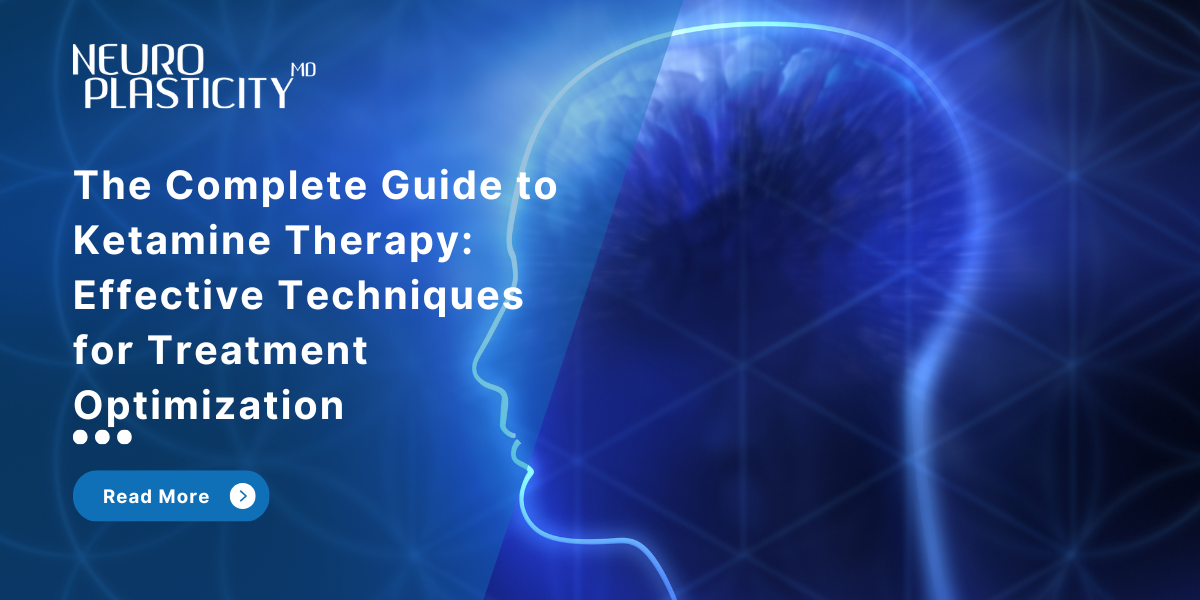How It Feels to Receive a Ketamine Infusion Therapy If...
Continue Reading
Currently, ketamine therapy has proven to be one of the most effective treatments for individuals suffering from anxiety, depression, PTSD, OCD, and even chronic pain. Unlike traditional treatments, ketamine Therapy is effective almost immediately, usually providing relief for patients within hours. However, to truly benefit from the treatment, careful preparation and aftercare is needed.
If you are looking for ketamine treatment providers, finding one with a good reputation isn’t enough – you need to ensure that you are getting the most out of every one of your sessions. Whether it’s before, during, or after your infusion, every treatment session can significantly improve how effective the therapy is for you.
This guide includes 20 tips that will allow you to enhance your experience and sustain your mental health well being in the future.
Adequate sleep plays a vital role for everyone, along with well balanced meals, to perform cognitive functions efficiently and regulate emotions effectively. Given how ketamine Therapy greatly alters brain chemistry, being well rested allows you to better process the experience.
Engaging in certain activities can heavily affect your mental state especially right before the infusion. Steer away from consuming aggressive and anxiety inducing news, shows, and social media posts before your session.
Experiencing a high volume of stress can make relaxing during the infusion difficult and different in your overall expectation. Try to avoid scheduling meetings or other complicated work conversations within the 24 hours preceding the appointment.
Some clinics advise patients who are set to receive an injection to refrain from eating for a minimum of 6 hours before the appointment due to the potential mild nausea that may accompany ketamine Therapy. However, lightly underfeeding people that are prone to low blood sugar is not advised.
Sugary foods and heavy dairy products should also be avoided as they can be uncomfortable.
Drink plenty of water in the days leading up to your infusion, but try to avoid consuming too much water two hours before the session to avoid discomfort.
Make time to check in your clinic 10-15 minutes prior, that way you can arrive relaxed rather than rushing. As much as you might want to this can cause far more stress than it alleviates.
Going in with no goal is often best, the general thought is what can enhance the experience, but having no expectations can often be frustrating.
Music, like everything else, can set the emotional and psychological tone of your infusion. Gentle, calming music is of the essence. Instrumental, ambient, and meditative music is preferable as it can assist in guiding the experience.
The way you feel physically will impact your state of relaxation during the session. Select clothes that are made of soft and breathable material with elastic or a loose-fitting waist. Bring a warm blanket for your lap if you feel the need.
Most ketamine clinics suggest infusions be done with eye masks. With these, a user will not be able to see anything thus no visual distractions which makes introspection deeper.
Because ketamine Therapy changes a person’s state of consciousness, they will need a ride home after the session. It is advisable to have a calm driver who understands what you just went through and is supportive.
On completing your session, give yourself a couple of hours of relaxing downtime. Keep away from work-related tasks, social media, or any form of engagement that is mentally draining. Concentrate on softer and more reflective forms of activities.
Eat the lightest and most nutritious meal possible after treatment, along with plenty of water. Try fruits, vegetables, and lean proteins, which are full of water.
Your brain remains flexible and ready for change long after treatment as ketamine Therapy enhances neuroplasticity. Take note of your feelings, behaviours, and emotions as you may be able to process these issues.
To help further process and solidify the insights gained during the therapy, consider working with a therapist or journaling. Plan a session within a few days after your infusion.
To support better emotional regulation and extending the positive effects of ketamine, consider the use of breath work, meditation, or other mindful activities.
In order to have the best possible outcome for the therapy, do not take alcohol, recreational, or for several days after the infusion. Alcohol and drugs slow down the positive impact the infusion has.
Self-care, including some form of exercise, adequate sleep, and nutrition, should be done in order to prolong the effects of ketamine Therapy.
Consider maintaining a treatment diary where you can jot down your feelings, thoughts, and progress. It can help track changes and diagnose them over a duration of time.
After an initial series of infusions, many patients will require maintenance treatments. Always follow your healthcare professional’s advice regarding how to maintain good treatment outcomes.
While ketamine for anxiety and other mental disorders works quickly and effectively, thoughtfully preparing for treatment and providing aftercare will give you the best results.
Implementing these strategies will help you fully take advantage of ketamine treatment near me and maintain benefits long term.
If you have any questions or are looking to begin treatment, get in touch with Neuroplasticity MD.
Call today for a FREE CONSULTATION at 1- 201-500-9728.
Our clinics are located in New Jersey.
How It Feels to Receive a Ketamine Infusion Therapy If...
Continue ReadingImprove Your Mental And Heart Health With Ketamine Therapy Ketamine...
Continue ReadingSupporting a Loved One Through Ketamine Treatment: A Compassionate Guide...
Continue ReadingDisclaimer: The medical information on this site is provided as an information resource only, and is not to be used or relied on for any diagnostic or treatment purposes. This information is not intended to be patient education, does not create any patient-physician relationship, and should not be used as a substitute for professional diagnosis and treatment. Always consult your healthcare provider before making any healthcare decisions or for guidance about a specific medical condition.